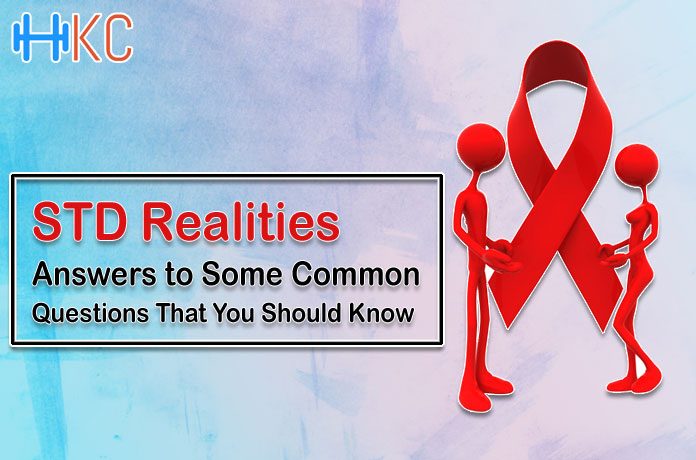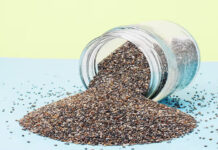
STD Realities – Answers to Some Common Questions That You Should Know
The very thought of having health related issues can cause a lot of discomfort to our minds. The best way to end the anxiety is to get tested for medical problems. In that same vein, STD related anxieties can lead to sleepless nights, which is why it is always a good idea to get tested for STDs.
Here are answers to some of the most common questions that people ask regarding STDs:
How long does it take for STD symptoms to appear after unprotected sex?
STD infections generally are asymptomatic, which means that there are no symptoms. Testing clinics are the best resource to find out if you really are infected with an STD or not. There are many types of STDs, which is why the signs and symptoms might show up in a few days, or possibly not show up for years.
Did my partner hide the fact they had herpes before spreading it to me?
People who tested positive for herpes for the first time are generally shocked, because that means they received it from their sexual partner. Or, at least that’s the conventional wisdom. It is possible however, that their partner wasn’t aware of being infected. This is because herpes does not always show symptoms. Moreover, herpes blood tests are not done as a regular medical examination – you have to specifically ask for this testing.
Does discharge from the penis indicate Gonorrhea?
Discharge is a symptom of many common STDs. To identify if you have an STD, you will need to visit your local testing center. A blood or urine sample is sufficient for most laboratory tests, and getting tested will give you peace of mind.
Do I have to use a condom during intercourse?
Practicing safe sex and wearing a condom can prevent STDs from spreading and are 98% effective at protecting against STDs such as chlamydia and gonorrhoea. However, condoms don’t protect you from all STDs – specifically the ones that can be transmitted by skin-to-skin contact.
How Likely are STDs in Relationships?
In a long-term relationship, one partner diagnosed with an STD can be a heartbreaking situation. Some people may assume that their partner wasn’t faithful. In some cases, this is true, but not always. If you both were not tested before you started a relationship, then it is possible that your partner may have been asymptomatic and unknowingly had the STD before you got together.
Should I tell my potential partner about my STD?
It is always recommended to disclose that you have an STD with your potential partner. Give them a chance to understand the risks and decide for themselves how best to move forward. Remember, STDs are not always relationship deal-breakers and many are curable or manageable through treatment.
If you already have an STD, are you more likely to contract another one?
The simple answer to this question is yes. If you have an STD already – especially one that creates sores or open lesions, then you’re more likely to contract an additional STD than the general population. There also are other sexually transmitted diseases that can increase the risks of HIV infections.
Which gender is at more risk of contracting STDs – Women or Men?
Women are slightly more at risk of getting STD infections when exposed, because of the anatomical structure of their reproductive organs. The vagina and the cervix provide more exposure to these infections, when compared to men. Moreover, there are chances of getting cuts and vaginal tears during sexual intercourse, which makes women more vulnerable to sexually transmitted diseases.
Are you at the risk of contacting any STDs because of having oral sex?
Yes there are certain types of sexually transmitted infections, which can spread through oral sex. Some of these are syphilis, gonorrhea, chlamydia, hepatitis B, and herpes.
Is it possible to get STDs because of anal sex?
Yes, people having anal sex are actually at the highest risk of contacting these sexual infections, including HIV. It is always better to use condoms if you engage in anal sex, especially if you have multiple partners.
Is it possible to get HIV because of physical contact like shaking hands and hugging?
The HIV virus cannot simply exist in open air environments for a long time, which is why it cannot be transmitted through casual physical contact like hugging and shaking hands. It does not spread through sharing food or toilet seats either, or even when you have a light kiss with closed mouth. HIV does not spread from mosquitoes either, because they are not the ideal hosts for HIV virus to survive.
Will you be able to avoid STD infection by washing your genitals after having sex?
Although there is no concrete evidence suggesting that you will be able to prevent STDs by washing your genitals immediately after having sex, it is always a good practice to ensure proper hygiene of your genital organs.
Why should women take additional care to prevent HIV infection during their pregnancies?
There are chances of transmitting HIV infection to their babies, if they get infected during the pregnancy period. (Or if they contract the infection before pregnancy.) The baby could contact an STD during the delivery or pregnancy stage, because of high volume of virus in the blood of the mother.
If you feel that you are infected with HIV after pregnancy, then you must get it immediately tested, in order to prevent the virus from getting transmitted to the baby.
At the same time, HIV infection during pregnancy can cause other complications for the mother. That however will depend on other factors like the care that she receives during pregnancy, and the nutrition she gets at that time. During the progressive stage of HIV, pregnant women become more vulnerable to other infections and health problems.
STD Myths:
Since we are discussing the realities of sexually transmitted diseases, it is also important for you to know about the various myths surrounding the STDs.
I don’t have symptoms, so I am not affected
The most common myths about sexually transmitted diseases is that people think that they are not affected, because they do not show any visible symptoms. In most cases, symptoms cannot be detected just by inspecting the genital organs. The fact is that you will not be able to see any physical symptoms on certain types of STDs.
The biggest misconception that people have about STDs is that they believe that they are not infected, because they do not see any physical signs. That is probably one of the main reasons why people do not bother getting themselves tested. The thing about STDs is that you will require proper diagnosis and testing to identify if you are infected or not.
I could get infected with HIV because of physical contact
Despite innumerable awareness programs about HIV and other sexually transmitted diseases, there still are many people who believe that these diseases can spread through physical contact like touching and soft kissing.
It has been adequately proved that HIV virus can only spread through the body fluids in a few ways like, unprotected sex, sharing injection needles, and also due to negligence in medical procedures like blood transfusions.
The fact of the matter here is that you cannot get HIV simply by hugging and shaking hands with other people. It is highly unlikely for it to spread when you have a light kiss with an infected person.
I can prevent STD infection by avoiding exchange of body fluid or seminal fluid
In addition to the exchange of fluids from the body of an infected person to another, STDs can spread in several other ways. You cannot be totally safe from these diseases by simply avoiding the contact of fluids. Some of the diseases like crabs, pubic lice, and HPV can also spread while touching the private parts during sex. What it means is that you could contact these diseases during other sexual actions like fingering and oral sex.
Anal sex and oral sex can prevent STDs
Although oral sex can definitely prevent the risk of pregnancy, it does not necessarily mean that it will prevent the spreading of sexually transmitted diseases. Yes, the chances of STD transmissions are less in oral sex, but you could still get infected with diseases like gonorrhea and chlamydia. However, you will not get STDs with oral sex, unless you have physical cuts or bruises in your mouth or oral cavity, but the chances are very less.
On the other hand, you are more susceptible to transmission of HIV virus during anal sex, as it could result in tearing of skin during the intercourse.












































I just got up from sleep and I am already reading your blog. It means something! Really useful ideas. Thnx!
I like this web blog very much, Its a really nice billet to read and obtain info .